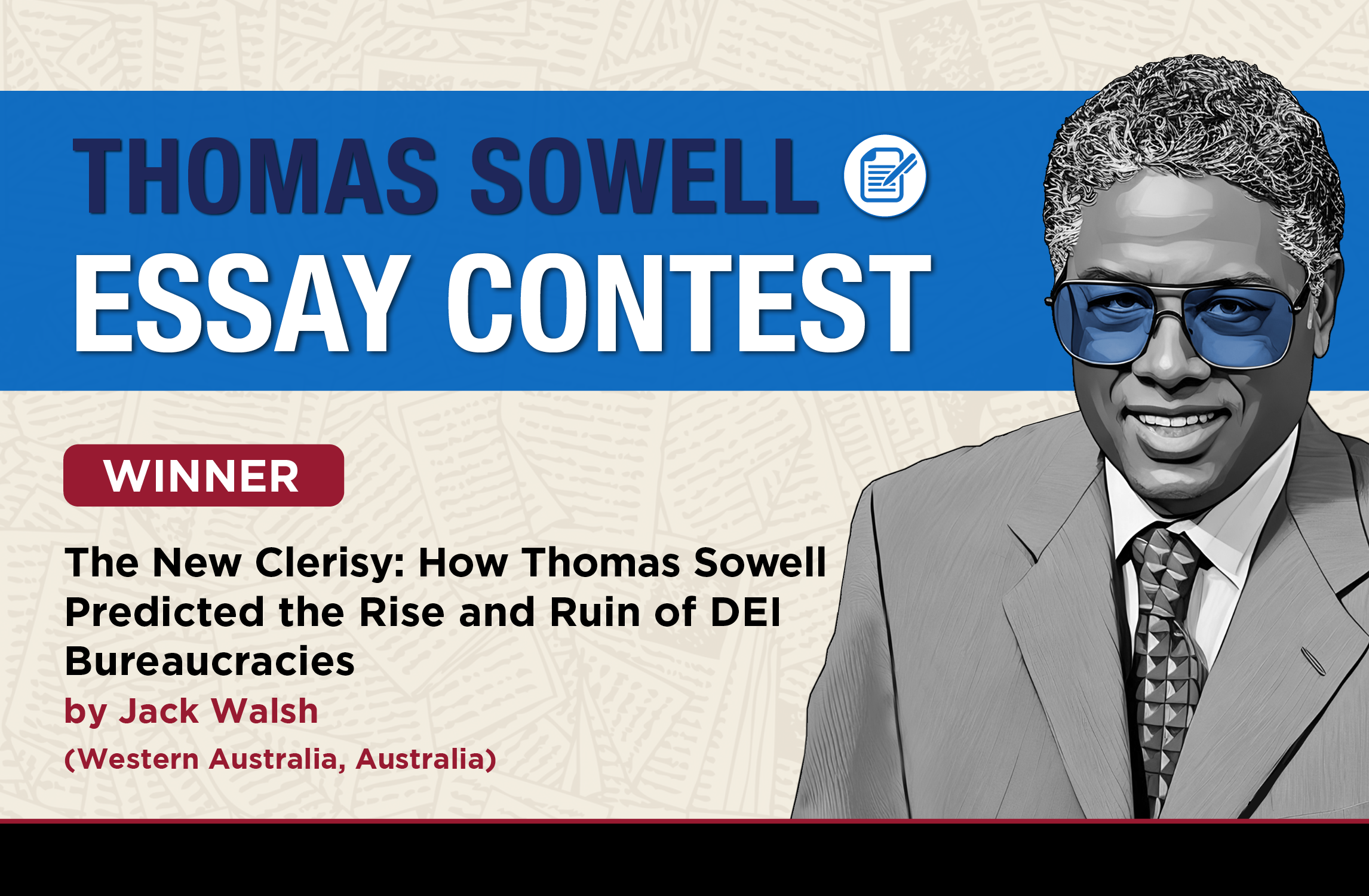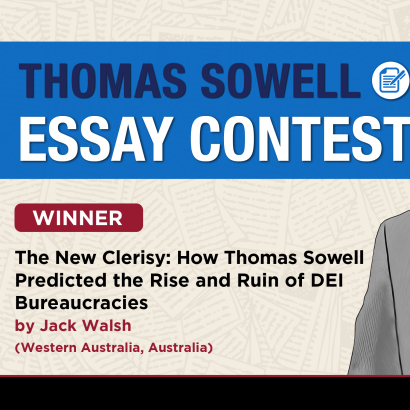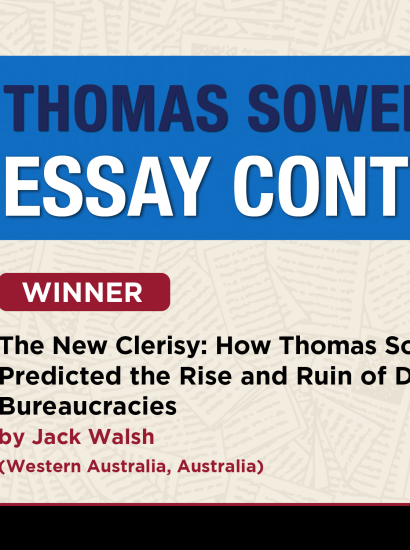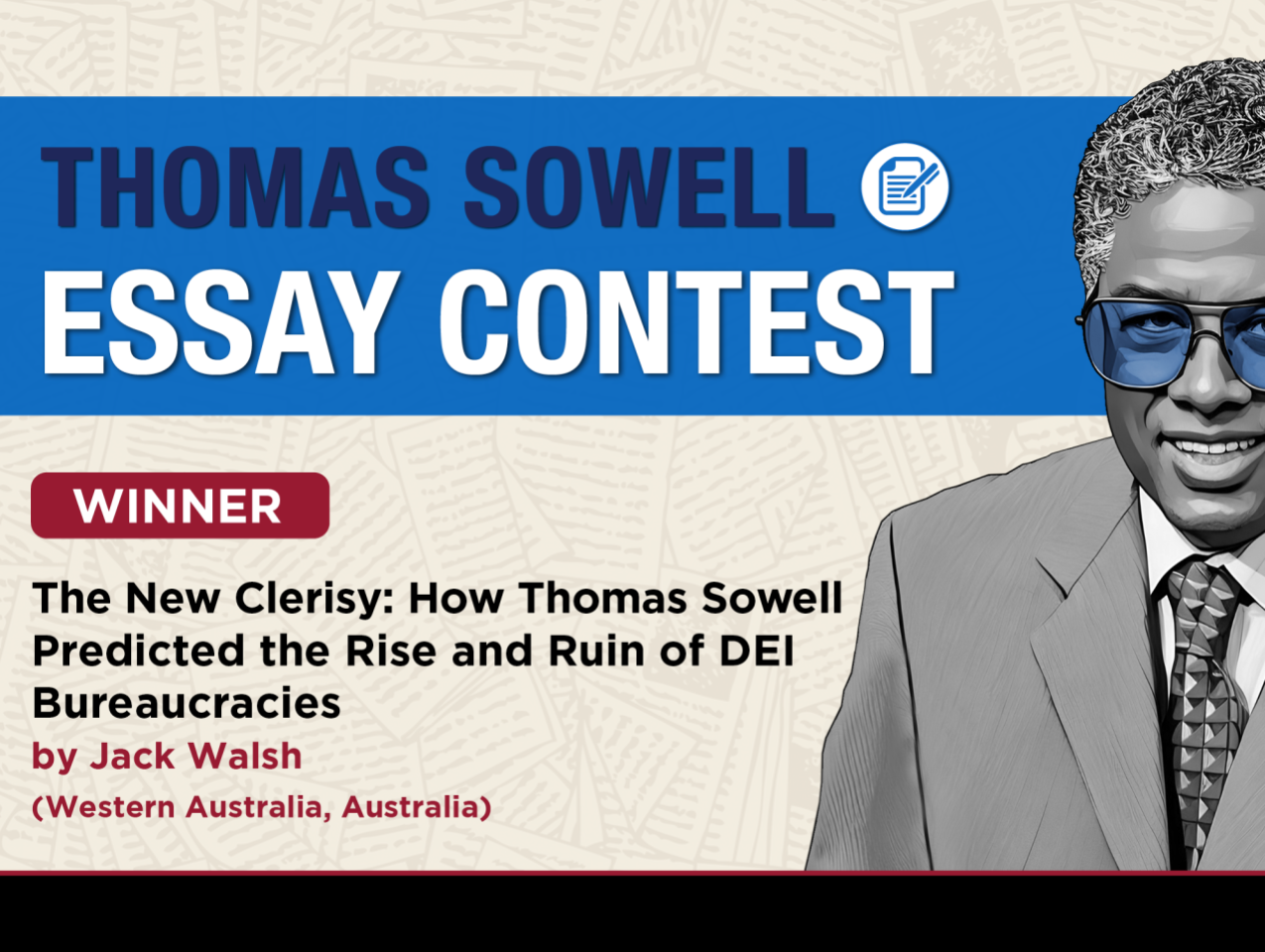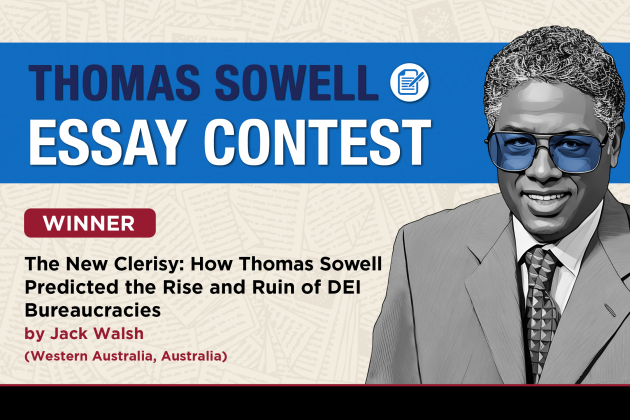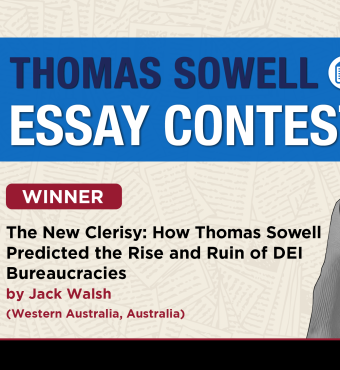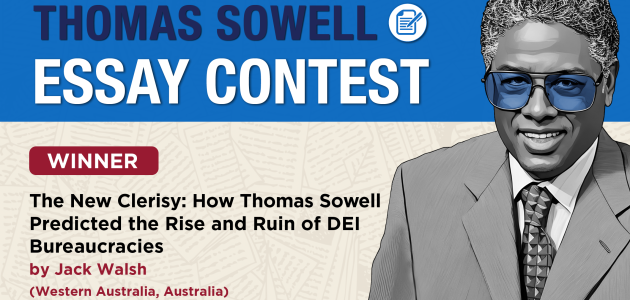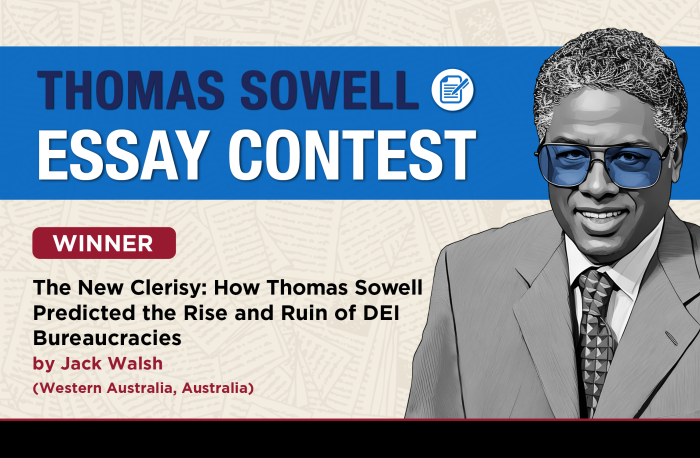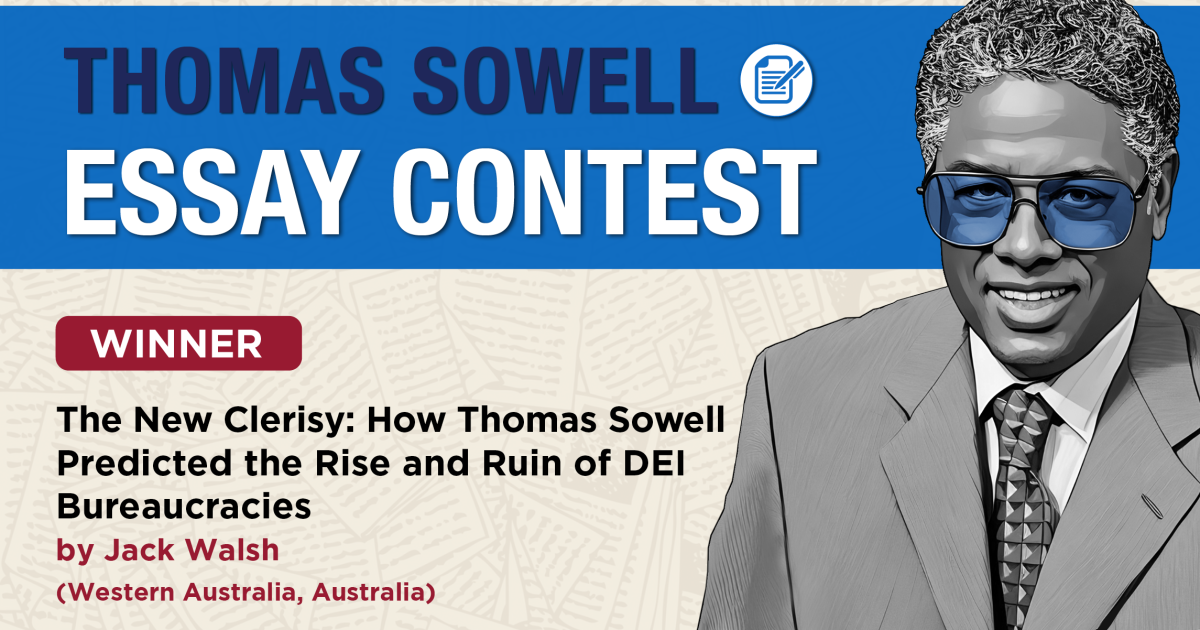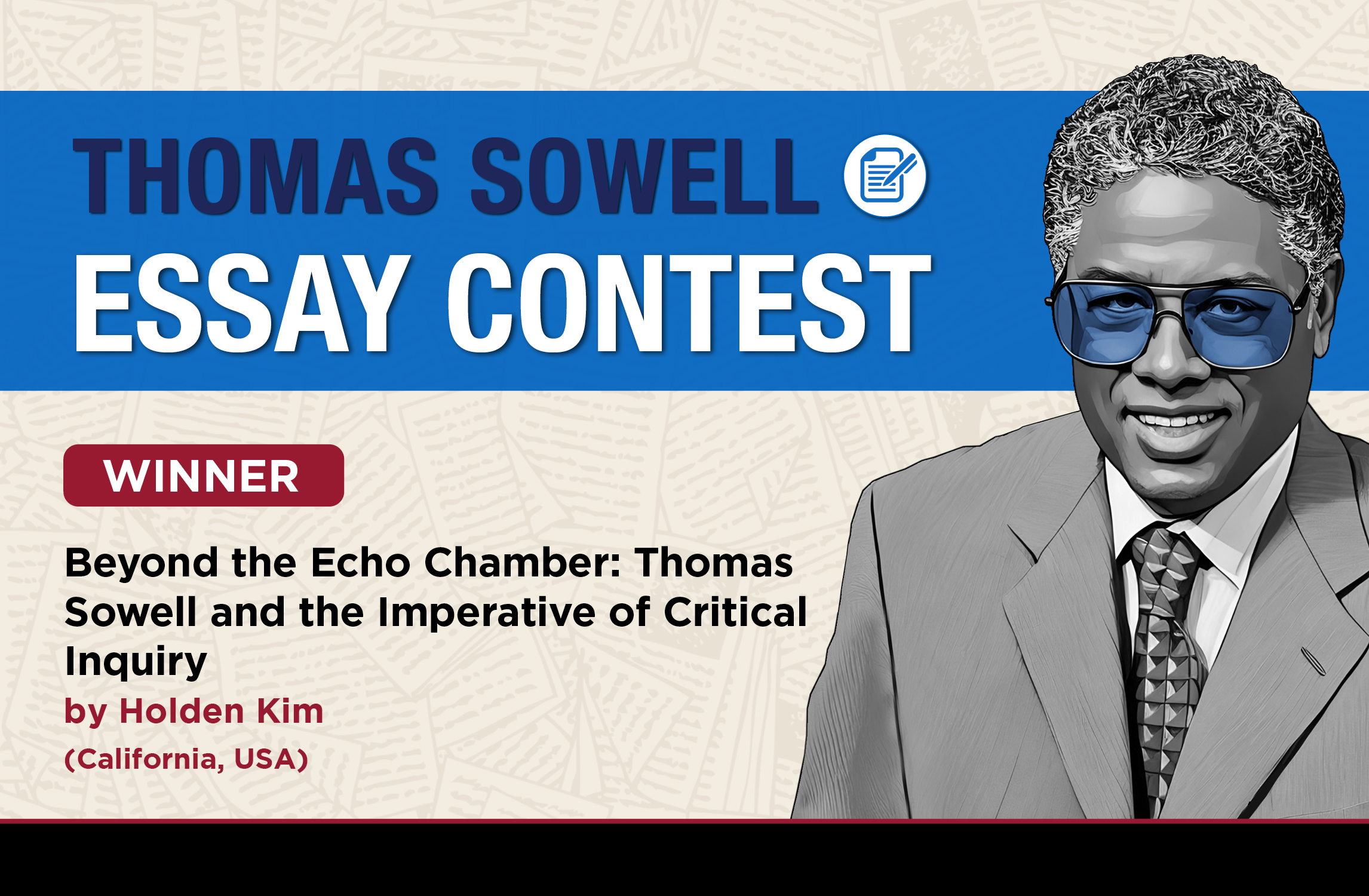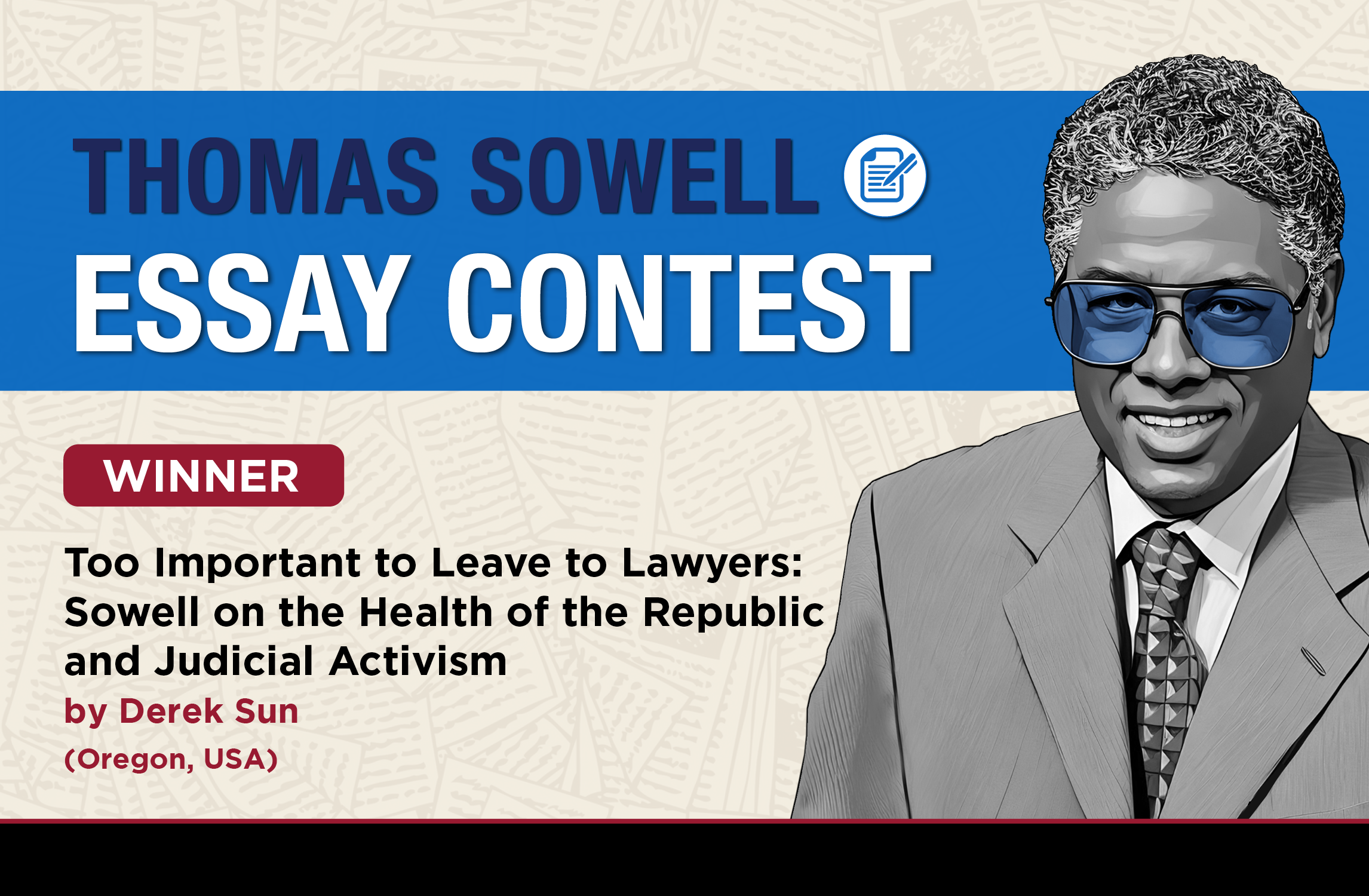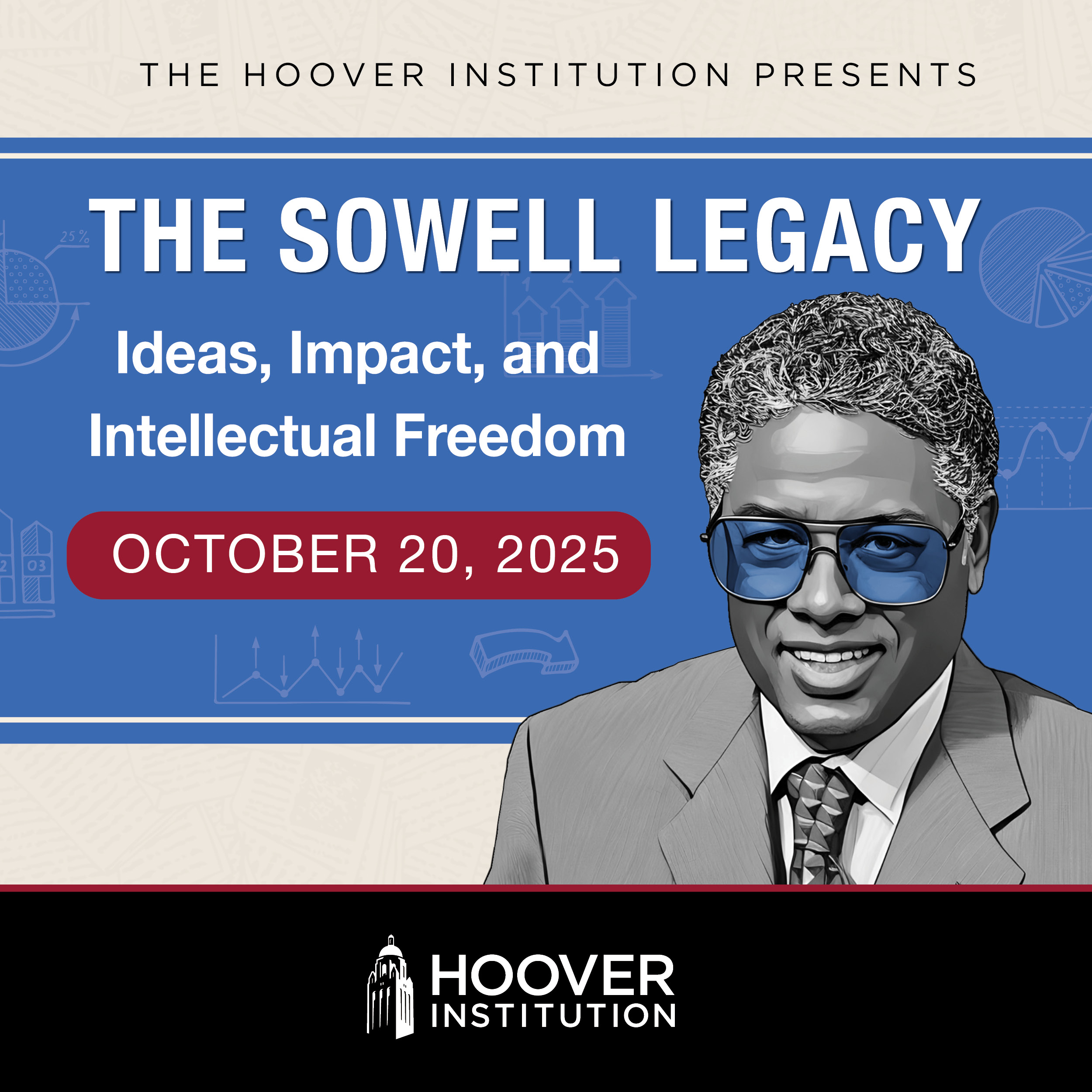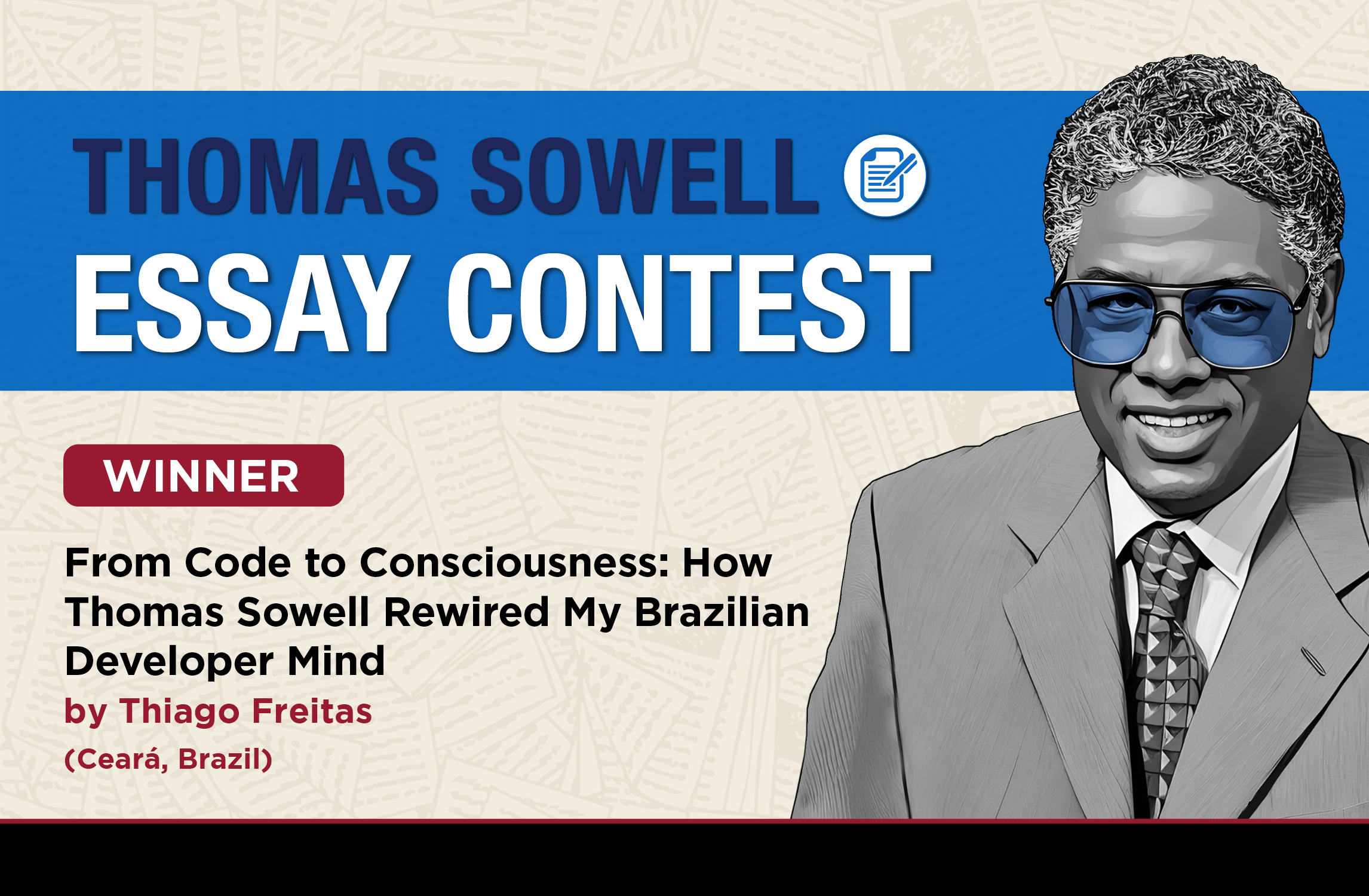
We are told, in our universities and institutions, that equity is justice, that diversity is strength, and that inclusion is progress. These are presented not as propositions to be tested, but as axioms beyond challenge. Yet in the shadows of these slogans lie bureaucracies that grow ever more powerful while producing no measurable good bureaucracies governed not by outcomes, but by visions.
Thomas Sowell warned us about this. He called them the anointed.
“The vision of the anointed is one in which third parties’ step in to right the wrongs done by one set of people to another. But these third parties are seldom held accountable for the actual consequences of their interventions.”
- The Vision of the Anointed, 1995
In the decades since Sowell wrote those words, the rise of Diversity, Equity, and Inclusion (DEI) bureaucracies across universities, corporations, and governments has perfectly illustrated his thesis. These institutions now operate with quasi-theological authority, reshaping everything from faculty hiring to corporate speech codes, often without scrutiny or restraint. Their rise marks a profound shift in how power is exercised in liberal democracies - through moral fiat, not empirical success.
And it is here that Sowell’s wisdom is most desperately needed.
The Bureaucratization of Virtue
In the language of DEI, “equity” no longer means equal treatment under the law; it means equal outcomes between identity groups, regardless of individual differences. This redefinition has given rise to a moral framework in which disparate outcomes are taken as prima facie evidence of systemic oppression - a conceptual leap that collapses the distinction between inequality and injustice.
“Disparities and discrimination are not the same thing. Discrimination means treating people differently. Disparities mean they turn out differently. The reasons may have nothing to do with discrimination.”
- Sowell, Discrimination and Disparities, 2018
Despite this insight, DEI offices have institutionalised the idea that statistical disparities must be corrected by administrative force: quotas, preference systems, and ideological programming. These measures are not merely expensive; they are epistemologically flawed. They presuppose that in a fair society, all groups would be equally represented in all outcomes - a belief Sowell dismantled with overwhelming global data, showing how cultural, demographic, and geographic differences explain outcome gaps far better than bias alone.
The DEI worldview thus elevates disparity into dogma. But if unequal outcomes are inevitable in a free society, then using them as proof of discrimination is not just wrong - it is dangerous. It justifies state intervention into hiring, speech, grading, and governance. The result is a creeping moral authoritarianism, dressed in the robes of progress.
And yet, armed with this flawed premise, DEI bureaucracies have become self-replicating machines. Harvard University, for example, employs over 100 DEI officers, with some making six-figure salaries, yet shows no evidence of improved student cohesion or academic performance as a result (Mac Donald, 2020). Similarly, in California, K–12 school districts like Los Angeles Unified have expanded DEI programming to include ethnic studies mandates and “anti-racism” curricula, despite persistent gaps in literacy and math. The bureaucratic solution to these failures is always the same: more programming, more officers, more power.
As Sowell noted: “The last thing the anointed want is accountability.”
The Erosion of Individualism and Merit
Perhaps the most tragic consequence of DEI’s ideological spread is its effect on individual agency. In place of personal responsibility, it offers group identity. In place of merit, representation quotas. In place of inquiry, indoctrination. This framework collapses the liberal foundation of the university and replaces it with a tribal schema.
At the University of California, job applicants for faculty positions must submit mandatory “diversity statements,” in which they pledge allegiance to DEI values. In practice, these function as political loyalty oaths: studies have shown that hiring committees often use them to filter out candidates based on ideology, rather than scholarship or teaching ability (Flaherty, 2019). This creates a chilling environment where intellectual conformity becomes a prerequisite for employment - a reversal of the university’s foundational mission.
This chilling effect reaches students, too. In 2022, a survey by the Foundation for Individual Rights and Expression (FIRE) found that over 60% of students reported self-censoring due to fear of social or institutional reprisal. This atmosphere of ideological orthodoxy discourages open inquiry, the very oxygen of education.
“It is hard to imagine a more stupid or more dangerous way of making decisions than by putting those decisions in the hands of people who pay no price for being wrong.”
- Sowell, The Vision of the Anointed, 1995
Indeed, the price is paid not by the administrators or the institutions, but by the students, researchers, and citizens who must live in a world where credentials replace competence, and outcomes are manipulated in the name of abstract virtue.
Empirical Failure, Ideological Immunity
One would think that if DEI programs were effective, they would be able to demonstrate success through measurable outcomes. But repeated analyses have shown no consistent benefits from these initiatives.
A comprehensive meta-analysis by Dobbin and Kalev (2016) found that most diversity training programs have little to no effect on long-term workplace outcomes - often producing backlash rather than harmony. In academia, elite universities that have implemented aggressive DEI hiring practices have not seen any increase in campus-wide equity or inclusion, but rather increased polarization and self-censorship (FIRE, 2023).
And yet, when these programs fail, the response is not to re-evaluate, but to expand. Failure becomes evidence not that the theory is wrong, but that it must be more radically applied - a classic feature of what Sowell called the self-reinforcing vision of the anointed.
“The anointed do not simply happen to be wrong on empirical questions. They are wrong because they are unconstrained by reality.”
- Sowell, The Vision of the Anointed, 1995
In this way, DEI becomes ideologically immune to falsification. Like a pseudoscience, it adapts its language to explain away its predictive failures. The result is a bureaucratic hydra, funded by public and private money, operating on moral sentiment rather than testable hypotheses.
A Better Path: Knowledge, Incentives, and Trade-Offs
If Sowell’s ideas were better understood, public policy would be reoriented away from intentions and toward incentives, knowledge, and trade-offs - the true levers of social change.
Rather than presume that unequal outcomes are unjust, we would examine what creates success across groups: family structure, educational discipline, cultural capital, and time horizons. These are not fashionable topics, but they are empirically consequential.
In fact, Sowell’s international comparisons demonstrate how groups facing severe discrimination - such as Japanese-Americans during WWII or Jews in Eastern Europe - nonetheless succeeded over time due to cultural norms emphasising education, thrift, and strong family ties. In place of DEI mandates, we could support community-based interventions aimed at replicating those strengths, particularly in underserved communities. For instance, charter schools that emphasize academic rigor and parental involvement have shown outsized success in closing achievement gaps (Angrist et al., 2013).
Rather than fund unaccountable DEI offices, institutions could redirect resources toward open inquiry, transparent metrics, and need-based support, not race- or identity-based preference. Rather than mandate ideological training, we could foster an academic culture where disagreement is not punished, but welcomed.
These are modest proposals - but they flow from Sowell’s unflinching insight: that reality is not optional, and that when policies are judged by their results, not their rhetoric, justice is no longer a slogan - it becomes measurable.
Conclusion: The Return of Reality
The rise of DEI bureaucracies represents not a moral revolution, but a regression into tribalism under the guise of compassion. If we want to reclaim our institutions, we must reclaim the discipline of asking tough questions, tolerating unpopular truths, and holding visions accountable to results.
Thomas Sowell gave us the tools. He taught us to look not at what people say, but at what their policies do. He taught us that disparities are not crimes, that intentions are not outcomes, and that the true test of an idea is not how it feels, but whether it works.
We do not need new ideologies. We need the courage to reintroduce reality.
References
Dobbin, F., & Kalev, A. (2016). Why diversity programs fail. Harvard Business Review, 94(7-8), 52–60.
Flaherty, C. (2019). Diversity statements questioned. Inside Higher Ed. https://www.insidehighered.com/news/2019/10/08/some-say-diversity-statements-used-political-litmus-tests
Foundation for Individual Rights and Expression (FIRE). (2023). College Free Speech Rankings 2023. https://rankings.thefire.org
Mac Donald, H. (2020). The Diversity Delusion: How Race and Gender Pandering Corrupt the University and Undermine Our Culture. St. Martin’s Griffin.
Sowell, T. (1995). The Vision of the Anointed: Self-Congratulation as a Basis for Social Policy. Basic Books.
Sowell, T. (2018). Discrimination and Disparities. Basic Books.
Sowell, T. (2004). Affirmative Action Around the World: An Empirical Study. Yale University Press.
Diamond, R., McQuade, T., & Qian, F. (2019). The effects of rent control expansion on tenants, landlords, and inequality: Evidence from San Francisco. American Economic Review. 109(9), 3365–3394.
U.S. Bureau of Labor Statistics. (2023). Highlights of Women’s Earnings in 2022. https://www.bls.gov
Goldin, C. (2023). Understanding the Gender Earnings Gap. Nobel Prize Lecture. https://www.nobelprize.org







